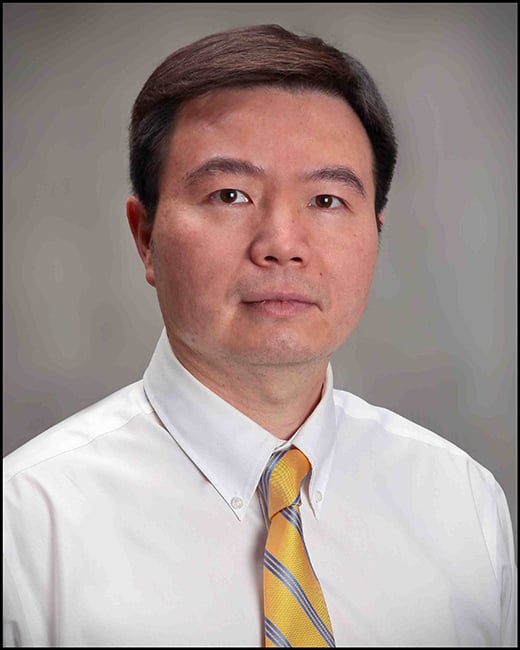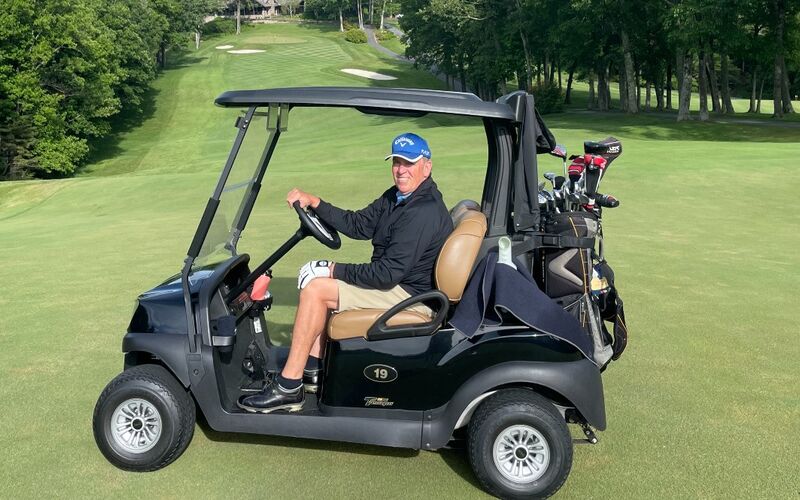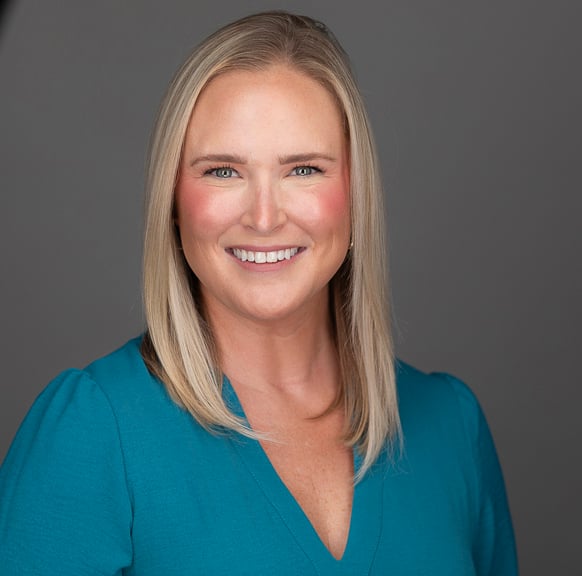A New Course in Prostate Cancer Care
For most of his life, Doug Slusser measured time in rounds of golf. The Ohio native pursued a professional career on the course before spending decades as a golf pro and managing clubs up and down the East Coast, eventually settling in Florida.
In 2006, he gave a golf lesson to Meegan, the woman who would become his wife. Today, at 70, he manages a country club in Venice, stays active and lives with Meegan in Bradenton.
You wouldn’t know it from looking at him, but Slusser is also living with stage 4 prostate cancer. He is one of a group of men enrolled in an adaptive therapy trial at Moffitt Cancer Center, where researchers are testing a new way of treating the advanced disease.
“It’s not a death sentence,” Slusser said. “It’s manageable. Who knows where it’ll be a year from now, but right now I’m still living a good, fulfilling and satisfying life.”
A Diagnosis and a Return
Slusser was cancer free for nearly 10 years before a recurrence. He started the adaptive therapy trial at Moffitt in 2021.
Slusser’s cancer journey began in 2009. A routine prostate-specific antigen, or PSA, test came back high. A biopsy confirmed prostate cancer with a Gleason score of 7. Concerned about surgery side effects, he chose to have proton radiation at a center in Jacksonville and remained cancer-free for nearly a decade.
In 2019, his PSA began to creep back up. The trend continued into early 2020, and a more extensive biopsy wasn’t conclusive at first. It was what doctors called “microscopic disease.” Further testing later confirmed it spread to several lymph nodes.
“I was told I was one of the unlucky ones,” he said. “One in about four people has a recurrence. That was me.”
Why Adaptive Therapy?
When hormone therapy became the next step, Slusser was offered the chance to participate in an adaptive therapy trial for advanced prostate cancer at Moffitt. Traditional care often relies on continuous testosterone suppression, sometimes called chemical castration, plus pills that block hormone signaling.
The problem is that over time, the cancer adapts and becomes less sensitive.

Jingsong Zhang, MD, PhD
“Typically, patients progress within two years,” said Jingsong Zhang, MD, PhD, a medical oncologist and interim vice chair of the Genitourinary Oncology Department at Moffitt. “The cancer learns how to grow even without testosterone, and the treatment stops working.”
Adaptive therapy takes a different approach. Treatment is cycled on and off, guided by PSA and testosterone levels. When levels are low, patients take a break. When they rise again, therapy starts.
“It’s not the traditional treat-until-progression model,” Zhang explained. “With adaptive therapy, we try to preserve sensitivity longer and lessen toxicity.”
Zhang says there are two goals: extend how long the cancer stays sensitive to treatment and cut down the long-term side effects of constant hormone suppression, like muscle and bone loss, cognitive effects and potential cardiac issues.
He adds that many patients are drawn to the individualized approach.
“Eventually, most patients will progress,” Zhang explained. “But even then, there are multiple standard options and clinical trials we can offer. The field keeps moving.”
Life on Trial
Slusser has been on the trial since 2021. He gets labs done every six weeks, often closer to home, plus CT and bone scans every 18 weeks at Moffitt. Many follow-ups are virtual.
“I am able to work, travel, do most everything I want,” he said. “If you looked at me, you wouldn’t know I had stage 4 cancer.”
Doug and Meegan Slusser enjoy traveling and are living life to the fullest.
But there are still tradeoffs. Hormone suppression still brings challenges like fatigue, weight gain and sexual changes.
“It’s an adjustment,” Slusser said. “Hormones are powerful. I am fortunate to have an understanding wife. She is with me at every appointment, taking notes. That support matters.”
Standard hormone therapy may lose effectiveness within two to three years. But Zhang notes some adaptive therapy patients have done well for six years or longer.
For Slusser, time is the goal.
“Medicine advances so fast,” he said. “If I can keep this at bay, there may be another treatment or something better down the road.”
Advice for Other Men
Slusser shares his story so more men will get tested and feel more comfortable talking openly.
“Early detection matters,” he said. “If your PSA is elevated, don’t ignore it. Thousands of us have gone through this, and the outcomes can be very good.”
He also knows that perspective helps.
“Things you think you couldn’t possibly deal with — when you’re in the middle of it, it’s amazing how your brain adapts,” he said. “Don’t put your head in the sand. Face it head-on.”
For Zhang, the trial points toward a more personalized future. “Every patient’s disease behaves differently,” he said. “Adaptive therapy is about tailoring treatment to that reality.”






